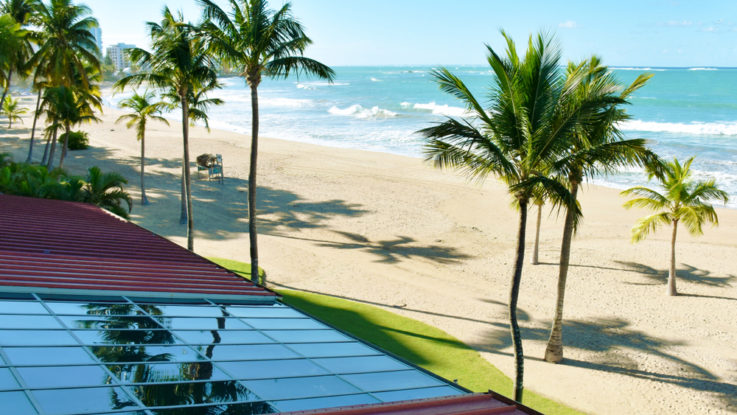
The small town of Adjuntas in Puerto Rico, when faced with the aftermath of Hurricane Maria in 2017, came up with a novel plan for providing electricity. As an emergency measure, small stores near its central plaza installed rooftop solar panels, with the energy created stored in a communal battery bank for the town’s use. The town’s 17,600 residents will now host the region’s first cooperatively managed solar microgrid.
The system includes approximately 700 panels mounted on seven buildings in the town’s central plaza and a battery storage system capable of providing up to 187 kilowatts of power. The batteries can provide enough off-grid electricity to keep 14 downtown businesses running for up to 10 days, serving as community hubs.
“This is something that we can feel extremely proud of,” said Arturo Massol Deyá, the executive director of Casa Pueblo, the community organization that’s spearheading the initiative.
The launch of the microgrid was delayed by the time needed to raise funds for the system’s components, along with COVID-related supply chain disruptions, as well recurrent earthquakes and hurricanes.
Business owners and residents will run the microgrid through a nonprofit called the Community Solar Energy Association of Adjuntas, which will sell electricity to the commonwealth’s grid through a power purchase agreement. The money saved by not needing to buy power from Puerto Rico’s main power company will support maintaining the microgrid and starting new community projects.
Community microgrids – such as those in Adjuntas – have proven effective on the island. When recently hit by Hurricane Fiona, every utility customer initially lost power, but those with solar panels and batteries were able to run crucial medical devices and operate communications networks in the storm’s aftermath.